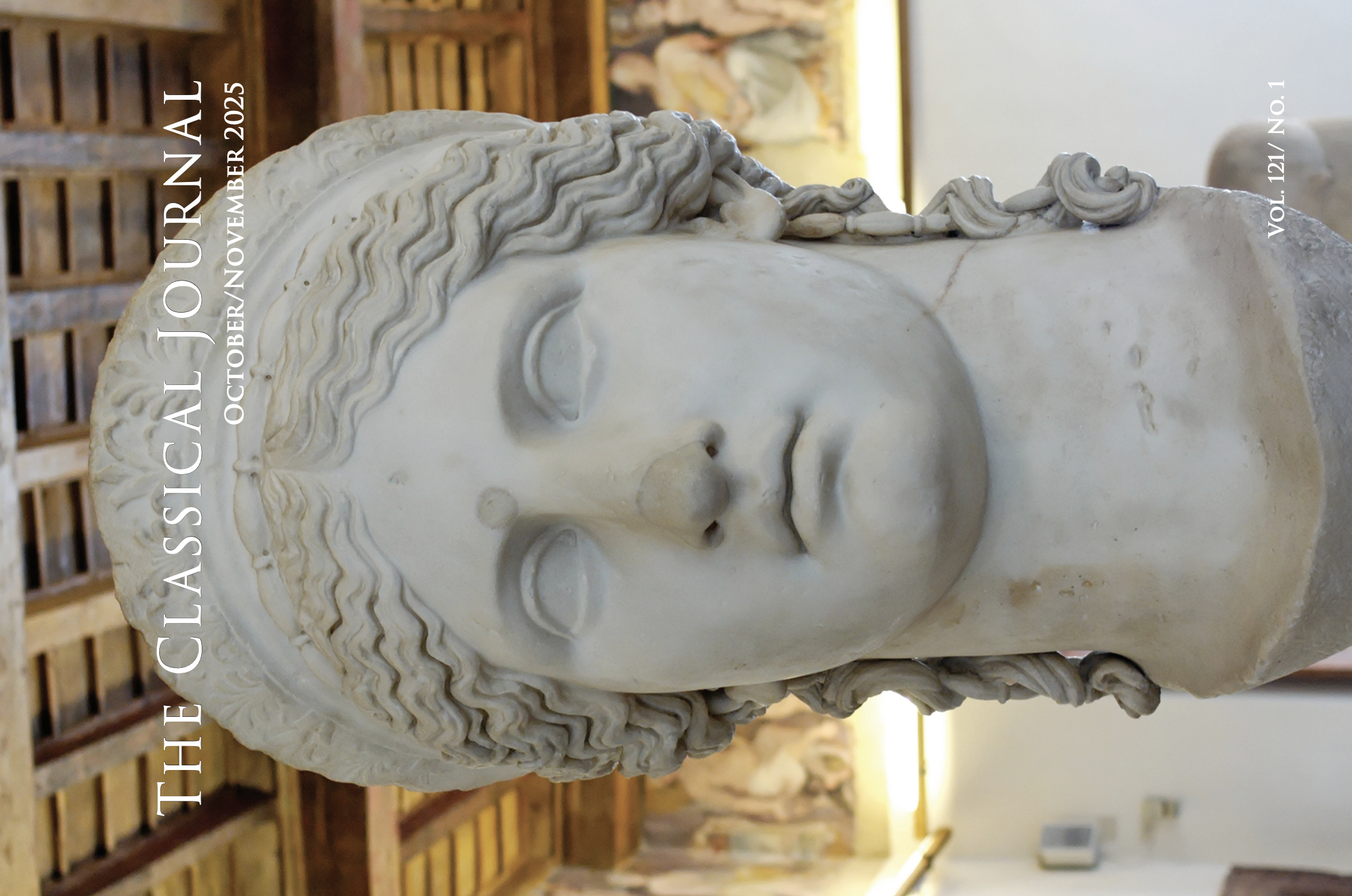The following articles are contained in CJ
101.2
Abstracts of Articles
THE TROJAN HORSE AT THE CLOSE OF THE ILIAD
Homer thrice alludes to the Trojan horse near the Iliad's end: Epeios knocks out an unwary opponent (23.68'91); Priam commands his people to haul lumber into the city without fear of ambush (24.778'9); the poem's final word suggests Troy's inability to survive without Hector hippodamos.
AN INDIC REFLEX OF THE HOMERIC CYCLOPEIA
The Homeric Cyclopeia has long been understood to be native to the folk tale, rather than the epic, tradition. This article suggests that a set of episodes from the Sanskrit epic Mahābhārata may provide not only a better hypothesis for the origins of the tale, but a compelling explanation of its meaning. The Mahābhārata's three scenes describing combat with ogres appear to have been constructed upon the same underlying tale as the Cyclopeia, and their narrative commonalities are supported by philological evidence as well. The comparison ultimately suggests that the story derives from Indo-European ritual and friction between the warrior and priestly classes.
HESIOD'S TREATISE ON JUSTICE: WORKS AND DAYS 109-380
In this article I argue that the middle portion of Hesiod's poem is a coherent essay on the concept of dik' ('justice'). He structures the piece as, in order, an account of the past; a quasi-prophecy of a possible dire present/future; and a statement of the theory and practice of dik' which is necessary to guard against such an outcome. He thereby portrays the concept as an all-embracing guide to life, and one which includes the need for fruitful labor in particular. I take account of interpretations that conflict with these conclusions.
CAESAR'S PRE-BATTLE SPEECH AT PHARSALUS (B.C. 3.85.4): RIDICULUM ACRI FORTIUS...SECAT RES
Many have noted the uniqueness of Caesar's pre-battle speech in oratio recta at Pharsalus, but no one accounts for it. The brief words played upon the soldiers' emotions in such a way that they released the equivalent of a hearty guffaw, and so fired the troops to fight and win.


